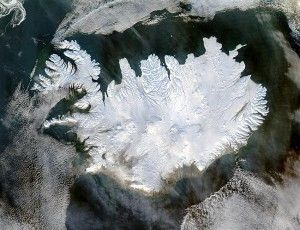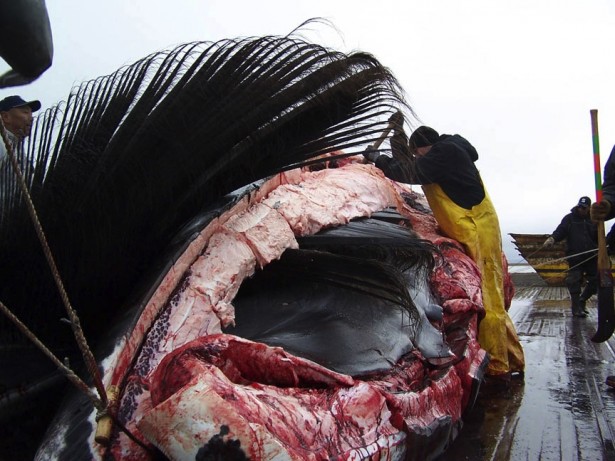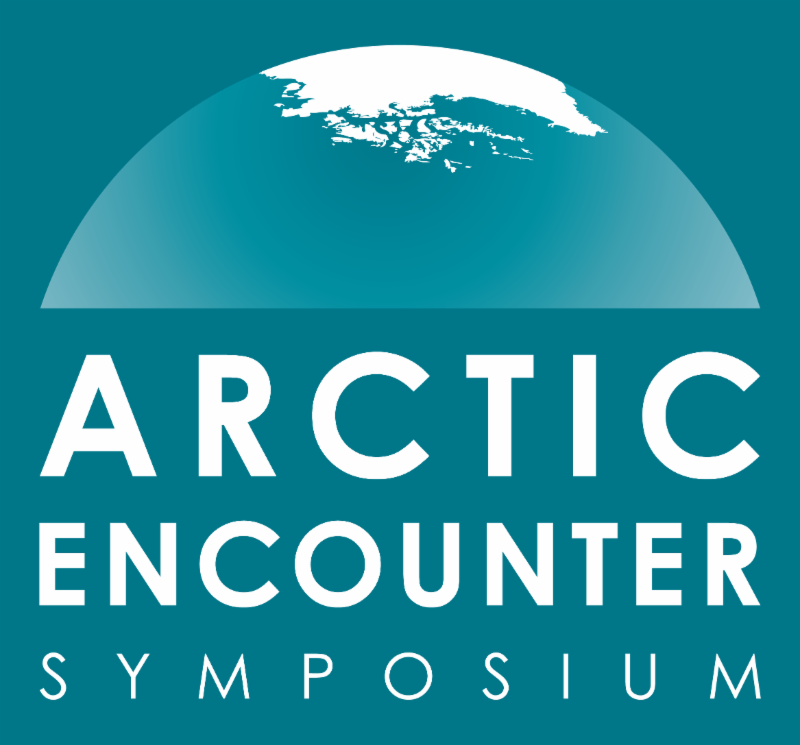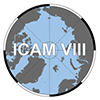|
|
|
|
|
|
|
|
48th International Arctic Workshop 2018, April 5-6, 2018 (Boulder, Colorado USA). Hosted by the Institute of Arctic and Alpine Research (INSTAAR), University of Colorado. The 2018 Arctic Workshop welcomes a community that includes all career stages - from student to distinguished world-class expert. The Arctic Workshop is open to all interested in high latitude environments, including those of the past, present, and future. Talks and posters on all aspects of Arctic science, social science, and engineering are invited, including Arctic and Antarctic climate, anthropology, atmospheric chemistry, engineering and infrastructure, environmental geochemistry, paleoenvironment, sociology, archeology, geomorphology, hydrology, glaciology, soils, ecology, oceanography, Quaternary history and more. If you are studying the Arctic, this is the conference for you.
|
Media
 Iceland To Propose A Ban On Use Of Petroleum In The Arctic. Iceland To Propose A Ban On Use Of Petroleum In The Arctic. Alongside eight other countries, Iceland has recently filed a proposal to the International Maritime Organisation to ban the use of petroleum in the Arctic region, RÚV reports. The decision comes after an intense battle led by various environmental organisations, including the Environment Agency of Iceland, to pressure the government to tighten laws regulating the use of petroleum in the oceans.
5 Plants and Animals Utterly Confused by Climate Change. Every year, as the seasons change, a complex ballet unfolds around the world. Trees in the Northern Hemisphere leaf out in the spring as frost recedes. Caterpillars hatch to gorge on leaves. Bees and butterflies emerge to pollinate flowers. Birds leave the Southern Hemisphere and fly thousands of miles to lay eggs and feast on insects in the north.
A Scheme to End the World's Worst Acid Trip. Faced with a warming world and few, if any, prospects for dramatic greenhouse gas reductions, some solutions for the climate change problem have focused on deliberately manipulating the Earth's climate. But from cloud seeding to installing giant mirrors in space, almost all geoengineering schemes ignore perhaps the most dangerous problem the planet faces: ocean acidification. Yet a recent report shows that by chemically manipulating the water on a vast scale, engineers could reverse ocean acidification.
 For Inuit, sharing traditional foods increases social inequality: study. For Inuit, sharing traditional foods increases social inequality: study. Why do people share their hard-earned food? The question troubles anthropologists. Evolutionarily, it does not make a lot of sense. Feeding your own family is one thing. Offering the spoils of your hunt to anyone who wants them seems like a waste of energy. Theoretical answers have included kin selection, tolerated theft, reciprocal altruism, and costly signaling of status.
Finland's Race for Arctic Riches. A new frontier of geopolitics is opening up as countries move to control lucrative and strategically important natural resources and shipping lanes in the Arctic, and Finland doesn't want to be left behind. The unprecedented rate at which the polar ice caps are melting is creating a flurry of activity. So far, Russia and China are leading the charge for the High North.
Synopsis: The Geometry of Arctic Ponds. Climate change has dramatically altered the Arctic, with sea ice melting faster than large-scale models predicted. Part of the reason for this underestimation is the lack of a full understanding of the ponds that develop from the melting ice. A new geometric model of Arctic ponds can reproduce observed distributions of pond size and shape. Because of its simplicity, the model may prove to be practical in predicting how further warming could affect polar ice caps.
|
|
Future Events
Polar Day, April 6, 2018 (Davis, CA USA). This Polar Forum is supported by the John Muir Institute at University California Davis. Chair of the US Arctic Research Commission Fran Ulmer will discuss "The Rapidly Changing Arctic: Why Does it Matter?" Dr. Steven C. Amstrup will discuss "Current and Future Challenges Facing Polar Bears." There will be a screening of the documentary "Between Earth and Sky." Following the film there will be a panel Q&A with Fran Ulmer, Eric Post, Steven Amstrup and David Weindorf.
 5th Annual Arctic Encounter Symposium (AES), April 19-20, 2018 (Seattle, WA, USA) 5th Annual Arctic Encounter Symposium (AES), April 19-20, 2018 (Seattle, WA, USA) The Arctic Encounter, the largest annual Arctic policy conference in the U.S., will convene policymakers, industry leaders, scientists, Arctic artists and musical performers, and other stakeholders to debate and discuss emerging Arctic challenges and opportunities including policy, innovation, security, and development. The mission of AES is to raise awareness, engage challenges, and develop solutions for the future of the Arctic region and the people who live there. The 5th annual AES will take place in downtown Seattle at the Bell Harbor International Conference Center on Pier 66.
2018 North by North Festival, April 23-29, 2018 (Anchorage, Alaska USA). The North by North Festival captures the spirit of Alaska and the Arctic - to address our challenges and opportunities with Northern innovation and resilience, to build on a rich history and to ensure a future full of promise. The Festival is for the North, and organized by Northerners, with goals of sustainability, livability and growth. The Festival brings innovators from across Alaska, the nation and other Arctic regions to collaborate and address local and circumpolar challenges. Through knowledge, governance, business, design, film, music, food, literature and art, we celebrate the North.
** New this week ** 2018 Anchorage Arctic Research Day, April 26, 2018 (Anchorage, Alaska USA). This event is held in conjunction with the 2018 North by North Festival. It is organized by the Arctic Research Consortium of the US, the University of Alaska Anchorage, the Anchorage Museum, and the Institute of the North. This gathering will include participants from government, corporate, academic, not-for-profit, and Indigenous groups, and will feature oral panel discussions by leading researchers across the natural and social sciences, health, engineering, humanities, the arts, and governance. The day will also feature both formal and informal activities to encourage networking and robust roundtable discussions to encourage collaborations across the boundaries of discipline, organization, and sector.
Council on Earth Cryology, May 15-16, 2018 (Moscow, Russian Federation). Scientific council on Earth cryology of Russian Academy of Sciences together with Department of Geocryology of Faculty of Geology of Lomonosov Moscow State University, Institute of the Earth Cryosphere, the Tyumen Scientific Senter, Melnikov Permafrost Institute (Yakutsk) of the Siberian Branch of the Russian Academy of Science holds on May 15 - 16, 2018 an enlarged meeting with participation of the Russian and foreign scientists, engineers and experts: "Current problems of geocryology." The meeting of Scientific council on Earth Cryology of RAS has the status of the International meeting. The publication of materials in the collection of reports is planned. Submissions (Submission Form), offers on cooperation, support of a conference and papers (Sample of Paper) to e-mail: cryoconf18@gmail.com
- Addressing the energy field of the future;
- Defense energy systems in the North;
- Natural hazards and aerospace/defense;
- Empowering Alaska's entrepreneurs;
- Navigating the changing Arctic; and,
- Developing local and global energy solutions.
The Effects of Climate Change on the World's Oceans, June 4-8, 2018 (Washington, DC USA). The 4th International Symposium will bring together experts from around the world to better understand climate impacts on ocean ecosystems - and how to respond. The event is hosted by a variety of groups including International Council for the Exploration of the Sea (ICES), N. Pacific Marine Science Organization (PICES), Intergovernmental Oceanographic Commission of UNESCO (IOC), and Food and Agriculture Organization of the United Nations (FAO).
 POLAR 2018, June 15-27, 2018 (Davos, Switzerland). POLAR2018 is a joint event from the Scientific Committee on Antarctic Research (SCAR) and the International Arctic Science Committee (IASC). The SCAR meetings, the ASSW and the Open Science Conference will be hosted by the Swiss Federal Institute for Forest, Snow and Landscape Research WSL under the patronage of the Swiss Committee on Polar and High Altitude Research. The WSL Institute for Snow and Avalanche Research SLF is organizing POLAR2018. POLAR 2018, June 15-27, 2018 (Davos, Switzerland). POLAR2018 is a joint event from the Scientific Committee on Antarctic Research (SCAR) and the International Arctic Science Committee (IASC). The SCAR meetings, the ASSW and the Open Science Conference will be hosted by the Swiss Federal Institute for Forest, Snow and Landscape Research WSL under the patronage of the Swiss Committee on Polar and High Altitude Research. The WSL Institute for Snow and Avalanche Research SLF is organizing POLAR2018.
5th European Conference on Permafrost, June 23-July 1, 2018 (Chamonix-Mont Blanc, France). In the continuation of the International and Regional conferences convened by the International Permafrost Association, the 5th European Conference on Permafrost (EUCOP 2018) will be held in Chamonix-Mont Blanc, France, 23rd June - 1st July 2018. The conference aims at covering all relevant aspects of permafrost research, engineering and outreach on a global and regional level. Conference website: here.
Arctic Observing Summit 2018, June 24-26, 2018 (Davos, Switzerland). The Arctic Observing Summit (AOS) is a high-level biennial summit that provides a platform to address urgent and broadly recognized needs of Arctic observing across all components of the Arctic system. AOS 2018 will be held in Davos, Switzerland ( June 24-26) and will focus on pressing issues in the implementation and support of sustained observations that can be addressed through a business-case lens. To that end, short submissions are requested that address any and all aspects of the overarching theme and sub-themes. Additional information can be found here.
17th International Congress of Circumpolar Health (ICCH17), August 12-15, 2018 (Copenhagen, Denmark). The ICCH congresses are held every third year in different locations in the circumpolar area and represent the largest scientific meetings worldwide on circumpolar health. The ICCH congresses serve as the primary source of information exchange and scholarly communication in issues relating to circumpolar health. More than 750 participants generally register and participate in each Congress, and more than 400 scientific papers or posters are usually presented.
UArctic Congress 2018, September 3-7, 2018 (Oulu and Helsinki, Finland).
The UArctic Congress 2018 will bring together key UArctic meetings and a science conference into one single gathering, including business meetings of the Council of UArctic, Rectors' Forum, Student Forum, and Thematic Networks & UArctic Institutes Leadership Team. The Congress is an integral part of the Finland's Arctic Council chairmanship program, and open to the public. The event will highlight the themes and priorities of the Finnish chairmanship, including the goals of the United Nations' 2030 Agenda for Sustainable Development, and the Paris Agreement under the UN Framework Convention on Climate Change.
The second Arctic Biodiversity Congress is hosted by the Conservation of Arctic Flora and Fauna (CAFF), the biodiversity working group of the Arctic Council, and the Ministry of the Environment, Finland. The second Arctic Biodiversity Congress will build on the success of the first Congress, held in 2014 in Trondheim, Norway, and will bring together scientists, policymakers government officials, Indigenous representatives, Traditional Knowledge holders, industry, non-governmental organizations, and others to promote the conservation and sustainable use of Arctic biodiversity.
|
|

  
4350 N. Fairfax Drive, Suite 510
Arlington, VA 22203, USA
External links in this publication, and on the USARC's World Wide Web site ( www.arctic.gov) do not constitute endorsement by the US Arctic Research Commission of external Web sites or the information, products or services contained therein. For other than authorized activities, the USARC does not exercise any editorial control over the information you may find at these locations. These links are provided consistent with the stated purpose of this newsletter and the USARC Web site.
|
|
|
|
|
|
|
|
|
 Iceland To Propose A Ban On Use Of Petroleum In The Arctic. Alongside eight other countries, Iceland has recently filed a proposal to the International Maritime Organisation to ban the use of petroleum in the Arctic region, RÚV reports. The decision comes after an intense battle led by various environmental organisations, including the Environment Agency of Iceland, to pressure the government to tighten laws regulating the use of petroleum in the oceans.
Iceland To Propose A Ban On Use Of Petroleum In The Arctic. Alongside eight other countries, Iceland has recently filed a proposal to the International Maritime Organisation to ban the use of petroleum in the Arctic region, RÚV reports. The decision comes after an intense battle led by various environmental organisations, including the Environment Agency of Iceland, to pressure the government to tighten laws regulating the use of petroleum in the oceans. For Inuit, sharing traditional foods increases social inequality: study. Why do people share their hard-earned food? The question troubles anthropologists. Evolutionarily, it does not make a lot of sense. Feeding your own family is one thing. Offering the spoils of your hunt to anyone who wants them seems like a waste of energy. Theoretical answers have included kin selection, tolerated theft, reciprocal altruism, and costly signaling of status.
For Inuit, sharing traditional foods increases social inequality: study. Why do people share their hard-earned food? The question troubles anthropologists. Evolutionarily, it does not make a lot of sense. Feeding your own family is one thing. Offering the spoils of your hunt to anyone who wants them seems like a waste of energy. Theoretical answers have included kin selection, tolerated theft, reciprocal altruism, and costly signaling of status.



